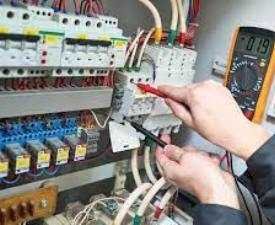Description
Course Duration
-
Total Duration: 3–6 months (depending on institution)
-
Mode of Delivery: Full-time/Part-time/Online (with practical workshops)
Entry Requirements
-
Minimum education: High School Diploma or equivalent
-
Basic understanding of mathematics and physics (preferred but not mandatory)
-
No prior electrical experience required
Course Modules
-
Introduction to Electrical Systems
-
Basics of electricity (voltage, current, resistance, power)
-
Electrical components (wires, switches, outlets, circuit breakers)
-
Electrical safety precautions and PPE (Personal Protective Equipment)
-
-
Electrical Wiring Techniques
-
Types of wiring systems (conduit, surface, concealed)
-
Wiring methods for residential and commercial buildings
-
Installation of switches, sockets, and lighting fixtures
-
-
Circuit Design and Installation
-
Reading electrical diagrams and blueprints
-
Single-phase and three-phase wiring
-
Circuit protection (fuses, MCBs, RCCBs)
-
-
Electrical Codes and Standards
-
National Electrical Code (NEC) / Local regulations
-
Inspection and compliance requirements
-
-
Troubleshooting and Maintenance
-
Diagnosing common electrical faults
-
Safe repair and maintenance procedures
-
-
Practical Training & Workshop
-
Hands-on wiring exercises
-
Use of electrical tools (multimeter, wire strippers, conduit benders)
-
Real-world installation projects
-
Certification & Assessment
-
Assessment Method:
-
Theory exams
-
Practical wiring tests
-
Project-based assignments
-
-
Certification Awarded:
-
Certificate in Electrical Wiring Technician (recognized by vocational/trade boards)
-
Career Opportunities
-
Electrical Wiring Technician
-
Maintenance Electrician
-
Electrical Installer
-
Apprentice Electrician
Further Advancement
-
Diploma in Electrical Engineering
-
Licensed Electrician Certification (after apprenticeship)
Training Institutions Offering This Course
-
Technical and Vocational Schools
-
Community Colleges
-
Trade Certification Centers




